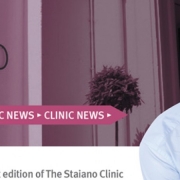When choosing a plastic surgeon and deciding where you are going to have your procedure undertaken there are important points to bear in mind.
Believe it or not, there are surgeons out there performing plastic surgery who are not fully trained in plastic surgery. There are currently no laws against anyone performing your surgery and so your dog has better protection that you have! Get a copy of my book to find out the facts.
Ask yourself these questions while you do your research:
Is the plastic surgeon fully trained?
Do I trust this surgeon?
Do I like the hospital?
Are the staff friendly?
Will the plastic surgeon look after me if I suffer any complications or have an unfavourable result?
Is the plastic surgeon fully trained?
This information can be easily obtained over the internet. A fully trained plastic surgeon is one who has done a period of recognised training leading to the award of a Certificate of Specialist Training (CCT). In order to apply for a CCT, surgeons will have had to have passed the intercollegiate specialty examination in plastic surgery at the Royal College of Surgeons. Once surgeons have passed this examination, they are entitled to use the letters FRCS(Plast) after their name.
Note, there is a big difference between FRCS and FRCS(Plast). FRCS (more recently MRCS) is a basic surgical qualification and is achieved after undertaking a period of general surgical training and passing general surgical exams. In order to become a fully trained surgeon, then you must undergo a further period of specialist training in your chosen speciality. For plastic surgeons, this involves a further 6 years in higher specialist training and it is only after that that surgeons can apply to take the exit exam and hope to be awarded FRCS(Plast).
Other surgical specialities have different letters after their name eg (Gen) for general surgery, (ORL) for ENT surgery, (Orth) for orthopaedic surgery and so on.
What are the differences between plastic surgeons?
All plastic surgeons tend to sub-specialise. Some will concentrate on facial reconstruction, others will operate on burns patients and some will focus on hand surgery. It is not unusual for a plastic surgeon who mainly performs hand surgery in the NHS, to perform some breast surgery in the private sector, as all plastic surgeons have received broad training.
In 2007, Mr Staiano chose to concentrate on breast surgery and so no longer performs any hand surgery or facial work, which allows him to keep up-to-date with the latest techniques and gives him the benefit of a broader and more extensive experience than those who focus on different areas.
What is the difference between a breast surgeon and breast plastic surgeon?
The two should not be confused as the same thing. Breast surgeons are surgeons that have been trained in general surgery and then sub-specialised in breast surgery. They deal with the investigation and treatment of breast disease and breast cancer. Plastic surgeons who specialise in breast surgery, tend not to be involved in the treatment of breast cancer, although many do work with breast surgeons and perform breast reconstruction following mastectomy or wide local excision. There are a group of breast surgeons, who have undertaken extra training in reconstruction and may offer breast reconstruction as well as treatment of breast cancers, these are known as ‘oncoplastic’ breast surgeons.
Breast plastic surgeons are dedicated entirely to breast plastic surgery.
What about surgeons who have trained in other countries?
It is not uncommon for doctors from overseas to come to the UK to work and gain experience. This can benefit both the overseas surgeon and the health service in the UK as it can bring a diversity of experience. However, training schemes abroad can differ to ours in the UK as the hierarchy can differ. In some countries, the health service is run by a professor with other consultants working under him. In the UK, once you become a consultant, you are expected to be in charge of your own patients and so UK consultants are trained to a very high standard and are capable of independent practice. It is difficult to assess the level of training of an overseas surgeon and so more research or caution may be required.
What about surgeons who are NOT registered?
It can be difficult to find your way through all of the qualifications that doctors possess. A doctor may say that he or she is registered with the GMC, but this is a basic prerequisite to practice medicine in this country and is no guarantee of training. A doctor may say that he or she is a member or fellow of the Royal College of Surgeons (MRCS or FRCS), but this just means they have completed basic surgical training.
If you want to make sure that your surgeon is fully trained in plastic surgery, then look for the letters FRCS(Plast) after their name or go to the BAPRAS (http://www.bapras.org.uk/find_a_member) or BAAPS (http://www.baaps.org.uk/component/surgeon/search/120/init/1) websites for a full list of doctors registered with these organisations. Membership of BAPRAS and BAAPS is only open to fully trained plastic surgeons.
Do I trust this surgeon?
Once you are happy with their qualifications, it is important to look at your surgeon’s portfolio. In your initial consultation ask to see photos of recent work including before and after photos. Also ask to speak to one of your surgeon’s former patients and ask them about their experience and how they feel about the outcome. Another way to find out about your surgeon is to look them up on forums. A good place to start would be the following forums:
www.realself.com/breast-augmentation/forum
http://www.sofeminine.co.uk/beauty/cosmetic-surgery-sr14.html
More than anything though, it’s how you feel about your surgeon once you have met him/her. You will know after your first consultation if you can get along together. It’s very important that your surgeon takes time to listen to you and treats you as an individual. Breast plastic surgery is a major decision and there is no one procedure that fits all. It’s an operation with associated risks and you must be sure that you are in safe hands.
It’s also a good idea to take a family member or friend with you when you first meet your plastic surgeon. A second opinion is very important. Also give yourself time to think about it. A professional surgeon will never force you into signing anything or encourage you to make rash decisions. Shop around, do your research and always give yourself time to think things through.
Do I like the hospital?
Unfortunately some plastic surgery organisations will do the consultation in one hospital or clinic but then carry out your procedure in another hospital. It’s really important that you try and visit where your treatment is going to take place. Ask yourself these questions: Is it clean? Are the reception staff friendly? Are they organised and on time? Do they have all your paper work in order? These will be good initial indicators that a hospital is organised and will ensure that your patient journey with them runs smoothly.
Are the staff friendly?
This is so important. You need to feel at ease throughout your treatment and it’s important that you have empathetic, friendly staff helping you along. Ask to meet some of the nurses and staff at your initial consultation. Ask them a few questions about what their role in your procedure will be. It’s easy to see if staff are friendly or not in the first meeting and initial conversations with them. Remember, you are paying them a lot of money and good customer service is the least you deserve.
Will the plastic surgeon look after me if I suffer any complications or have an unfavourable result?
This is extremely important. As we have seen with the latest PIP controversy, many cosmetic surgery organisations do not have a patient focussed aftercare plans. There has also been a lot of press about companies offering cut-price cosmetic surgery at home and abroad and not dealing with adverse or unfavourable outcomes, leaving the patient having to seek help from their GP and the NHS.
Whilst major complications are rare, there can be minor imperfections and it is important that your surgeon will see you through these and offer you revisions if necessary.
Make sure the after care plan ensures that your surgeon will look after you if anything goes wrong. Also ensure there are no hidden clauses about extra payments and find out how much your surgeon charges for follow ups. It can become very expensive if your surgeon charges you for every meeting after the surgery. Again, do your research thoroughly and take your time. You need to make sure that you are in safe, experienced hands and that you are with a practice that will not charge the earth if something goes wrong.







#askjj
Read Jonathan's book now!
Jonathan is on a one man crusade to revolutionise the image of cosmetic surgery and is passionate about spreading his message about cosmetic surgery training.Download our app